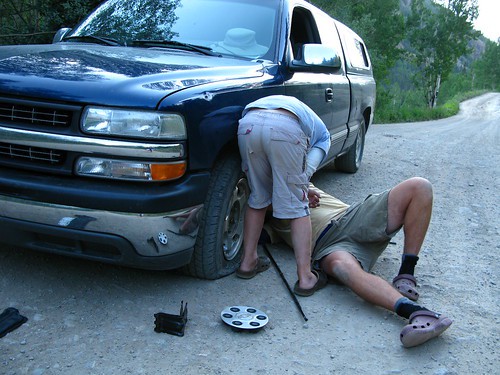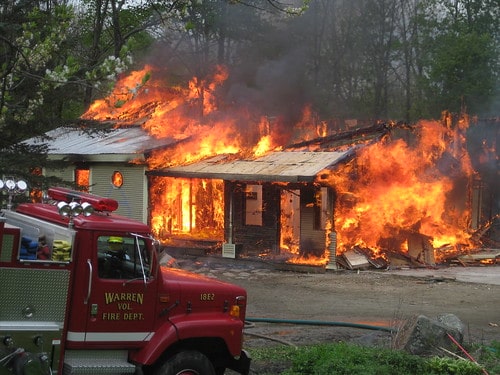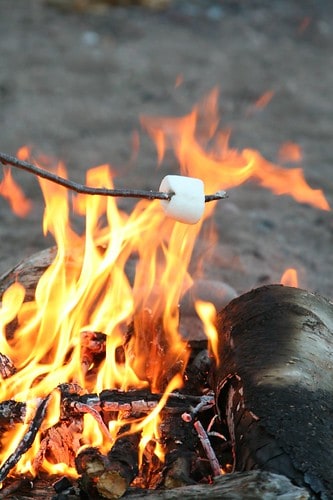Don’t Let Irregular Expenses Wreck Your Budget (or Drain Your Emergency Fund)

The good news was that we had the funds set aside for that specific reason—auto repairs. We've never used one of our targeted accounts before, and now that we have, I can attest that they are a fantastic idea.
Obviously the repair would cost the same whether it came from a big account labeled “emergency fund” or a targeted one called “auto repair.” We're out $600 either way, so why bother with separate, targeted accounts?
Tw
Job Loss: Got a Financial Game Plan?
According to the Bureau of Labor Statistics, the number of unemployed was 15.4 million and the jobless rate was 10 percent in November. While those numbers "edged down" from previous months, there's no doubt that job loss and unemployment are hot topics, and people are worried.

Even if your income has remained unaffected, hearing stories on the news and witnessing friends and family members experience job loss can make a person nervous. It's why car dealerships and travel companies are offering job loss insurance, reassuring consumers that it's okay to buy a new car or book a cruise.
My Advertising Crash Diet
Thanksgiving might be my favorite holiday, and in large part that's because I spend it camping in Terlingua Ranch and hiking, backpacking, or kayaking in Big Bend National Park (about 15 minutes away from the ranch).
I get mixed reactions when I tell people that's how my family celebrates the holiday. Yes, we do have turkey — slow-cooked over a fire no less. Yes, we do bring toothbrushes and brush our teeth (no kidding, my dad was asked that question once). Yes, there are tarantulas, but they really just want to be left alone.
Silence and stillness
Besides the canyons, river, and wildlife, I look forward to the trip all year long for the silence and stillness of the biggest and least-visited national park. I work in a largish city, and most days I feel bombarded by marketing and advertising. I turn on the news, and I have to sit through ads. I check my e-mail, and inevitably some retailer is having a sale. I get free magazine subscriptions filled with ads. I drive and hear ads on the radio and see them on billboards. Sometimes it seems I can't escape. (Even Get Rich Slowly has ads!)
How much house do you need?

For more than a decade, Jay Shafer of Tumbleweed Tiny House Company has lived in an 89 square-foot home.
His decision to live in a tiny house came from concerns about the effects a larger house would have on the environment, and his desire to not maintain a lot of unused or unusable space.
Obviously Jay's home is at the extreme low end of how small one can go with living space, but it meets his needs and allows him to live the simple lifestyle he was seeking. While it may seem impossibly small to the majority of people, 89 square feet is Jay's right-sized home.
The Anti-Stuff Holiday Gift Guide
For the past couple of years, my husband and I have not exchanged traditional, wrapped-and-Christmas-bowed gifts. Instead, we plan an experience.
We started our anti-Stuff celebrations because neither of us could think of a gift we truly wanted. Then we'd each be scrambling to think of something, anything, since not giving a box with a bow was unacceptable. This way, the pressure is off, and we create memories of fabulous meals and trips to vineyards, instead of piling up Stuff to fulfill a gift requirement.
I'm not against traditional gifts, especially if you know it's something the recipient will use or enjoy. But if you are at a loss for the hard-to-buy-for loved ones on your list, consider an anti-Stuff gift of consumables or experiences. Why? Continue reading...
The Art of Improvising: Alternatives to Buying New

When my husband and I were in debt-repayment mode and had our discretionary spending locked down, I began to see that there are alternative solutions to problems that I once thought could only be solved by buying something. Sometimes quality counts, but more often than not, I would choose a solution that required spending more than necessary, when some forethought might have yielded a solution that was less expensive (or even free). Or maybe if I had stopped to think about it, I'd have realized it wasn't a critical problem, and I could just choose to do nothing about it.
We set a strict budget while we were paying off our debt, so it was necessary to think about alternatives before every purchase to meet our payment goals. The great thing is that it became ingrained in me, and it's something I continue to try to do. Here are some of the techniques I use. Continue reading...
Pros and cons: 30-year mortgage vs. 15-year mortgage



The main differences between 15- and 30-year loans are straightforward. Fifteen-year loans have higher monthly payments, but you pay less interest, while 30-year terms have lower monthly payments, but you pay significantly more for the house in the long run. As with most areas of personal finance, however, this decision is about more than just the math. There are other important considerations, such as retirement savings, risk tolerance, and discipline.
Renters insurance: Peace of mind for ten bucks a month

"We lost everything," he says. Later they'd find out that it was arson. A former employee of the apartment complex stole rent checks and set the office on fire. Frank was moving into a new apartment in ten days, and the new complex agreed to let them move in early. "We moved in with a plastic bag of groceries, paid for with a $50 food voucher from the Red Cross," he says. The other 70 displaced tenants stayed in Red Cross shelters.
To make matters worse, Frank didn't have renters insurance. "We didn't think we'd ever need it," he says. "You don't see why you should pay this extra bill until you're in a situation where you need it." They had to start over from scratch.
Lighting a Fire: How to Overcome Procrastination

Everyone can relate to the act of avoiding an unpleasant task, and we all know that hardest part is just getting started. Writing the first five words. Sorting the first load of laundry. Adding up your total debt.
Once I overcome inertia and actually pick up the proverbial pen, I find that words flow freely. Before I know it, I've written 1500 words, finished the laundry, and paid off the credit cards. When we light a fire in ourselves, we create momentum that propels us forward. Our fire, or zeal, keeps us disciplined and focused on the goal.<
Should you buy it? A flowchart for evaluating potential purchases
My husband and I are in the process of building a home on 4.5 acres in the Texas hill country. At the moment, we're still in the planning phase — not quite ready for blueprints.
Last month, our architect asked us to start thinking about the make and model of the kitchen appliances we want for our home. Visions of sleek, Thermador cooktops and double ovens danced in my head. Even when I saw the hefty price tag, I thought maybe we could find other ways to cut back so that we could afford the dream oven. After all, we're both avid cooks. To us, eating well is one of the best ways to enjoy life. There's no doubt we'd use it, so the purchase makes sense. Right?
Reality Check From a Minimalist
Then I happened upon an article by Mark Bittman, who writes The Minimalist column in The New York Times. In "So Your Kitchen is Tiny. So What?" he describes how he makes do with 42 square feet of kitchen space, precious little counter space, and a stove that sometimes doubles as storage for pots and pans. It is in this space that he develops most of the recipes for his cookbooks. Continue reading...
Become A Money Boss And Join 15,000 Others
Subscribe to the GRS Insider (FREE) and we’ll give you a copy of the Money Boss Manifesto (also FREE)

